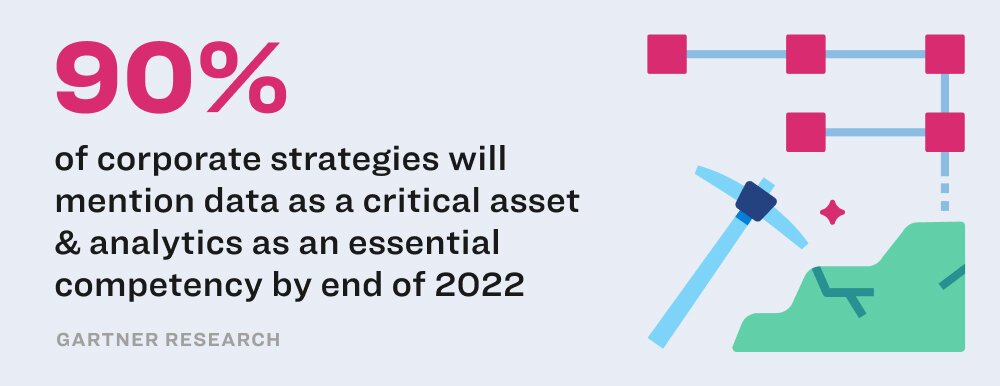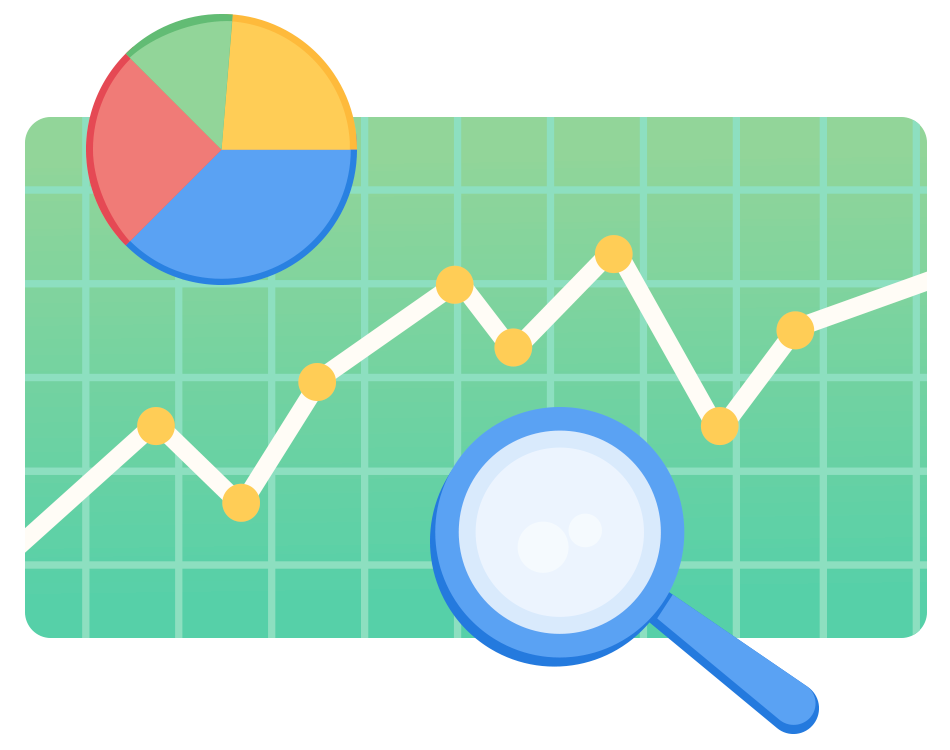blog
Why Data Is Essential To Digital Transformation
By Siddhant Chaudhary Digital transformation AI and ML Data Analytics July 12, 2022

Digital transformation focuses on data-driven digital enablement in order to deliver value and create benchmarks as a growth indicator. Some of the advantages of digital transformation for a business are reduced costs, better customer experience, robust decision-making process, enhanced profitability, better market penetration, consolidated operations, and enhanced agility and innovation. Today digital transformation has grown to become the centre stage of corporate strategy. The role of data in digital transformation is critical as it helps open up vast avenues of new business practices and revenue streams, enhancing profitability.
Data and Digital Transformation
Digital transformation is a process centred around digitalising the existing business processes, with a focus on customer engagement. Data-driven digital transformation has forced companies to be more flexible, responsive and resilient to change. As data generation is a continuous process, companies must keep pace to be relevant to the digitally evolving customers. There are several essential aspects of the role of data in the digital transformation of a business. However, the most important are to:
Enhance the ability to capture and use data in real-time to improve quality, security and efficiency,
Focus on augmenting the user experience with data analytics for an inevitable migration to the cloud for the much-needed agility for businesses to scale up their data requirement.
Deliver data in real-time to help in quick decision-making.
Generate intelligence for predictive and prescriptive models for optimised operating models.
Data-driven digital transformation backed by powerful Machine Learning/ML and Artificial Intelligence/AI can help businesses develop a comprehensive data strategy that can help generate important models:
For building a holistic data strategy that can play a pivotal role for everyone in the organisation
To articulate the current state of the data transformation journey
To focus on consistency in communication and receive vital feedback from relevant stakeholders
To clearly define measurable Key Performance Indicators (KPIs) for success
To focus on cases that help validate their strategy and ensure widespread adoption
Data and Analytics
Data and analytics are key ingredients fomenting a business organisation’s push towards digitalisation and transformation efforts. Using data analytics in digital transformation helps organisations embrace data to transform themselves for their end-user. Gartner predicts that by the end of 2022, 90% of corporate strategies will mention data as a critical asset and analytics as an essential competency.

Businesses are focusing on using data to:
Understand customer behaviour, product usage and services, and map industry benchmarks
Forecast liquidity and optimise opportunities
Develop strategies to detect fraud
Develop insights from customer surveys to understand customer-related attributes such as revenues, attrition and retention and, in turn, predict customer behaviour and proactively address any issues
Capture data points across the entire business process to identify the potential for boosting operational efficiencies
Optimise employee productivity management
Many businesses struggle under the weight of legacy business models and analogue processes that use data and analytics sub-optimally. However, this can be effectively countered by developing the organisation's competency in using data analytics in digital transformation processes within the organisation. This can be done by:
Collecting samples of internal and external economic benefits from data and analytics that the organisation has generated over a certain period
Measuring and communicating the value of an organisation's data assets to facilitate a shift from the traditional approach to treating data as an actual asset
Insisting on ensuring that data and analytics competencies are incorporated into workable plans of a business organisation and communicating the same to all stakeholders internally and externally
Building, buying, and borrowing advanced analytics competencies such as data science or machine learning and making all-out efforts to embed them throughout the organisation
What Lies Ahead
Many organisations are using advanced data analytics after completing the first few phases of digital transformation adoption. The role of data in digital transformation is set to change in the coming years, with data and analytics systems and processes set to transform the traditional IT environments completely.
The focus is now more on using efficient and services-driven applications that rely on cloud-based technologies and operating models. These allow data and analytics components to extract and exploit value to the maximum.
Data engineering and data analytics/data science are the two categories of software development processes in the data and analytics segment. In the years to come, software developers will need to work towards developing new software coding based on a new environment and resist the existing organisational setup.
Finally, big data systems are expected to utilise modern software languages to develop and deploy codes and applications to revamp or replace rigid legacy systems. DevOps processes are incompatible with big data and cannot be used.
Benefits of Data-Driven Digital Transformation
1. Equilibrium between risk and reward
This is facilitated by injecting the right data points into business intelligence and analytics tools. It enables businesses to maximise benefits while minimising market risks. Advanced digital transformation tools allow businesses to adhere to global rules and regulations.
2. Exploring new business opportunities
Businesses can achieve this by staying ahead of emerging threats, opportunities, and trends, which allows them to explore new markets and shift business priorities.
3. Redefined processes
Redefining processes allows businesses to use data to bring out all details of any business process to identify risks, inefficiencies, and all areas with scope for improvement. This helps business managers replace legacy systems with new and improved processes to make their business more efficient and profitable.
4. Deeper insights into customer behaviour
Businesses can obtain this through data, allowing business managers to track and measure every customer’s interaction and use data gleaned from it to build a detailed customer profile. It also allows businesses to create better customer-centric products and services, improve customer experience, and convert more prospects into customers.
Final Words
Data and analytics can be broadly categorised as elements that impact the overall development of businesses. If properly utilised, data analytics can be instrumental in overcoming rigid aspects of legacy systems and adopting and evolving them into efficient and profit-making businesses. Organisations can harness the benefits of data-driven digital transformation techniques to collect data and analytics and focus on enhancing the user experience for an inevitable migration into the cloud, among other things.



